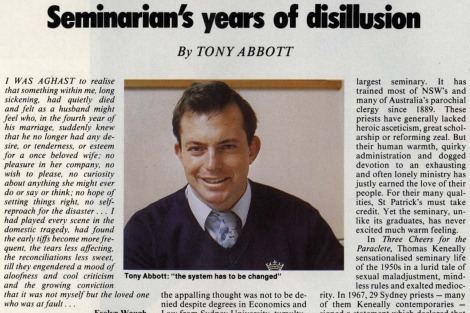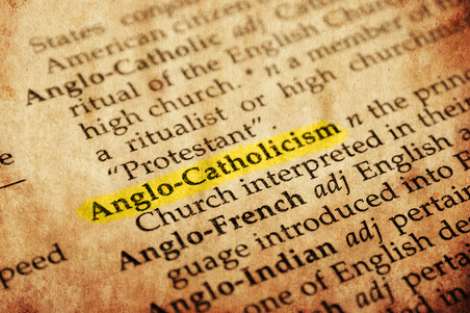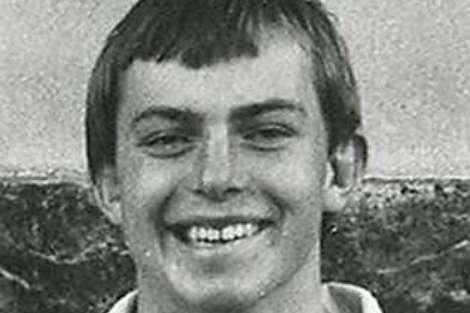Keywords: Religious Beliefs
There are more than 200 results, only the first 200 are displayed here.
-

INTERNATIONAL
- Chris Middleton
- 16 November 2015
14 Comments
In many of these conflicts religious difference constitutes an important element in the conflict. Some commentators point to religion as the cause of many of humankind's wars. In a sense they are correct, as they would be also if they ascribed war to humankind's quest for liberty, equality, justice, or even love. It is a paradox of the human condition that that which is noblest in the human often gives way to violence and intolerance. How are we supposed to react to such an attack?
READ MORE 
-

EUREKA STREET TV
- Peter Kirkwood
- 28 October 2015
4 Comments
'How we address radicalisation as a psychologist is to help people to examine their way of thinking. Every form of radicalisation and fundamentalism is to do with rigidity in the way people think. Our job is to help people to see that rigidity in anything doesn't work.' Clinical psychologist Shehzi Yusaf has a particular interest in the role of religion and spirituality in mental health. She is based in Parramatta, the site of the recent murder of NSW police employee Curtis Cheng by 15-year-old Farhad Jabar.
READ MORE 
-

AUSTRALIA
- Frank Brennan
- 23 October 2015
4 Comments
Francis knows there are all sorts of issues inside and outside the Church where for too long people with power have tried to keep the lid on, in the hope that the problems and complexities will go away, often by parodying those who see the problems or complexities as small 'l' liberals or cafeteria Catholics. He delights in being joyful and troubled while contemplating big problems, calling people of good will to the table of deliberation reminding them of the kernel of the Christian gospels. He has the faith and hope needed to lift the lid without fear and without knowing the answers prior to the dialogue occurring.
READ MORE
-

RELIGION
- Michael McVeigh
- 15 October 2015
11 Comments
Many in the Church would echo Tony Abbott's feelings on the dangers a theological environment 'at war with itself' presents to its moral authority. Similarly, there are many conservative politicians and members of the press who look at the current political commentary — marked by discussion rather than authority — and wonder what a government can accomplish in such an environment. Not surprisingly, Cardinal George Pell — described by Abbott as a 'fine human being and a great churchman' — is among those pushing back against the dialogue at the current Synod on the Family.
READ MORE 
-

- Frank Brennan
- 18 September 2015
Pope Francis's concerns are not narrowly dogmatic or pedagogical but universally pastoral. He knows that millions of people, including erstwhile Catholics, are now suspicious of or not helped by notions of tradition, authority, ritual and community when it comes to their own spiritual growth which is now more individual and eclectic. He wants to step beyond the Church's perceived lack of authenticity and its moral focus on individual matters, more often than not, sexual. He thinks the world is in a mess particularly with the state of the planet — climate change, loss of biodiversity and water shortages, but also with the oppression of the poor whose life basics are not assured by the operation of the free market, and with the clutter and violence of lives which are cheated the opportunity for interior peace. He is going to great pains to demystify his office. He wants all people of good will to emulate him and to be both joyful and troubled as they wrestle with the probl
READ MORE
-

RELIGION
- Kevin Donnelly
- 31 August 2015
23 Comments
Various state based legislation argues that education in government schools should be secular in nature, but it does not rule out a place for religion in the general curriculum. To argue that religions should have a greater place in the school curriculum is not to proselytise. Rather it is to recognise that, while we are a secular society, students need to encounter a more transcendent sense of life that incorporates a strong moral, spiritual and ethical dimension.
READ MORE 
-

AUSTRALIA
- Andrew Hamilton
- 27 August 2015
27 Comments
Religious schools have emphasised the transmission of faith and an ethical way of life through a network of relationships, symbols and processes. But this is now being tested, with the dominant view that values and faith are a private matter best hosted inside the family. The operative goals of schools become the academic and economic advancement of individuals, with religious classes and rituals little more than decoration and rhetorical branding.
READ MORE 
-

- Frank Brennan
- 26 August 2015
7 Comments
When addressing Italian doctors last November, Pope Francis quoted St. Camillus de Lellis who suggested that the most effective method in caring for the sick was simply to 'Put more heart into those hands.' Let's do something to change the market settings and political settings here in Australia to modify the behaviour of all Australians in the future, and let's attend to our own Franciscan interior ecological conversion with our care for the vulnerable.
READ MORE
-

ARTS AND CULTURE
- Brian Doyle
- 19 August 2015
27 Comments
Not one of them ever raped a child or moved rapists from one parish to another. Not one of them ever played havoc with church funds. Not one of them ran off with a secretary. As far as I could tell each of them embraced hard work, and kindness, and humility and was every bit as committed and dedicated to the ancient mission of the Church as any priest or brother or abbot or bishop or cardinal or pope.
READ MORE 
-

AUSTRALIA
- Frank Brennan
- 12 August 2015
142 Comments
I readily accept that the Commonwealth Parliament will legislate for same sex marriage in the foreseeable future. When Parliament does, I will be fully accepting of that decision. If asked by politicians how they should exercise their conscience vote, there is no way that I would say that they should not support civil recognition of same sex marriage. But neither would I say that they must support it NOW. If I were a member of parliament, I would want four assurances before I voted for same sex marriage.
READ MORE 
-

- Frank Brennan
- 06 August 2015
3 Comments
Pope Francis is not the first pope to address a social encyclical to everyone. But in comparison with his predecessors, Francis has been more inclusive in the process of writing the encyclical and in the final content of the document. He quotes from 17 different conferences of Catholic bishops. He is at pains to indicate that he is collaborative and that he takes the principle of subsidiarity very seriously. Being the final redactor of the text, he has felt free to interpolate some very folksy advice from time to time. He has also taken the liberty of inserting some very blunt, evocative images of environmental and economic devastation.
READ MORE
-

EDUCATION
- Andrew Hamilton
- 06 August 2015
56 Comments
It seems absurd to hold schools responsible for the way Shorten, Abbott, Joyce, Pyne and Hockey behave. Schools have influenced them in good and bad ways, but ultimately they are their own men. So we Jesuits have no call to apologise, nor to take pride. We are not responsible for them. But we are responsible to them, as we are responsible to all our alumni, even if they languish in public life or public prisons.
READ MORE 